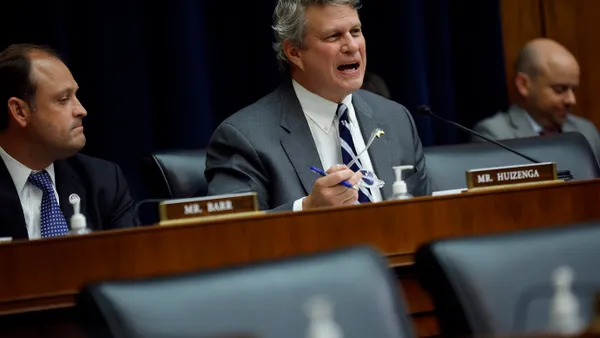A Maryland legislative proposal is taking a more restrictive approach to earned wage access than has been pursued in some states, and this week it drew opposition from fintech advocates.
The proposal, House Bill 246, would require some earned wage access providers in the state to submit to licensing and registration requirements. It would also subject them to the state’s lending laws.
Earned wage access, also known as on-demand pay, allows employees to tap their earned wages before a regularly scheduled payday. There are dozens of EWA providers, all with different business models, including some that work through employers and others that do not. The providers include Payactiv, DailyPay, Wagestream and FlexWage Solutions. The services have been widely used in gig worker industries.
“The bill explicitly treats certain earned wage access products as loans,” according to a Maryland General Assembly fiscal and policy note that accompanied the bill. The bill would also limit “the costs and fees associated with obtaining an earned wage access product,” the note said.
“The bill requires licensing and registration of entities offering earned wage access products but exempts from licensure employers (and employer-connected entities) who provide earned wage access at no cost to employees,” the note said.
Last year, Maryland’s Commissioner of Financial Regulation delivered guidance on earned wage access practices, producing a policy edict that determined some earned wage access services provided by third parties may qualify as loans, and therefore will be subject to the state’s lending regulations.
Maryland is among a slew of states grappling with how to treat the new financial service. Missouri and Nevada last year passed legislation requiring registration of EWA providers. California has been mulling more restrictive legislation related to EWA.
In Connecticut, FlexWage said recently that it has received approval from the Connecticut Department of Banking to offer its services in the state without applying for a lending license.
On the federal level, the Consumer Financial Protection Bureau has also said that it plans to weigh in with guidance on how consumer lending laws apply to EWA.
The American Fintech Council this week took issue with Maryland’s approach, saying in a press release that it would “mischaracterize” EWA services and send Marylanders into the arms of loan sharks.
“EWA is not a loan and should not be regulated as such,” AFC CEO Phil Goldfeder said in testimony before the Maryland House Committee on Economic Matters, according to the text of his testimony. “More than 100,000 Maryland residents have already utilized EWA as a safe, reliable alternative to payday and predatory” lending.











